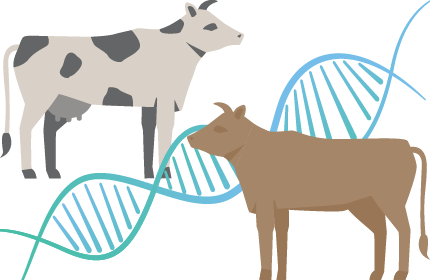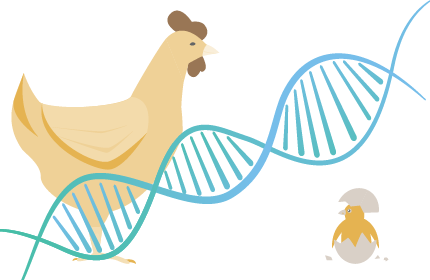Regulatory Frameworks for Animal Biotechnology in Africa Workshop
-

July 28, 2022-July 29, 2022
Movenpick Hotel & Residences
Nairobi, Kenya
Overview
The development and use of genetically engineered (GE) animals have lagged the commercialization of genetically engineered plants. Partly as a result of this, regulatory systems for addressing the pre-market safety assessment and commercial approval of GE animals and derived products are less well developed than with counterpart systems for GE crop plants, resulting in significant uncertainties that have adverse impacts on both innovation and trade. Supported by a grant from the USDA FAS New Technology and Production Division, the Agriculture & Food Systems Institute (AFSI), Acceligen, and the International Service for the Acquisition of Agri-biotech Applications (ISAAA) AfriCenter co-organized a capacity building workshop in Nairobi to assist in the development of the necessary technical and regulatory frameworks to allow for commercialization and trade in the products of animal biotechnology.
Engaging with regulators and experts in African countries that are currently developing GE animals and, in parallel, associated regulatory frameworks, this workshop introduced key concepts, starting with the problem formulation methodology, which allows participants to articulate their environmental and food safety protection goals and follow a logical process for identifying how GE animals can be assessed to ensure that their use does not lead to adverse outcomes for human health or the environment.

Videos
Agenda
Day 1: July 28, 2022 (Morning - Open Session for All Interested Persons)
Chair: Margaret Karembu
8:00 am
Welcome Coffee
8:30 am
Meeting Welcome
Dr. Martin Mwirigi, Kenya Agricultural and Livestock Research Organization (KALRO)
8:50 am
Keynote: Animal Biotechnology for Africa
Jimmy Smith, Director General, International Livestock Research Institute (ILRI)
9:10 am
Biosafety for Animal Biotechnology and Gene Editing in Kenya and Nigeria
Dr. Roy Mugiira, Acting CEO, National Biosafety Authority, Kenya
Dr. Rufus Ebegba, Director General/CEO, National Biosafety Management Agency, Nigeria
10:00 am
Coffee Break
10:30 am
Biosafety for Animal Biotechnology and Gene Editing in Brazil and Argentina
Prof. Fernando Garcia, Professor, Universidade Estadual Paulista & Member, National Biosafety Technical Commission (CTNBio), Ministry of Science and Technology, Brazil
Dr. Martin Lema, Adjunct Professor in Biotechnology, Quilmes National University Argentina (Virtual)
11:30 am
Moderated Panel Discussion to Address Similarities and Differences between the Four Systems
12:30 pm
Lunch
Day 1: July 28, 2022 (Afternoon - Invited Participants Only)
Chair: Jose Fernando Garcia
1:30 pm
Introduction to the Format for the Remainder of the Workshop
1:40 pm
Presentation of Previous Workshop and Main Recommendations
Dr, Margaret Karembu, Director, ISAAA AfriCenter
2:10 pm
Presentation of Case Study: Technical Introduction
Dr. Tad Sonstegard, Chief Executive Officer, Acceligen
2:45 pm
Coffee Break
3:00 pm
Discussion of Case Study: CRISPR-Cas Gene Editing
4:00 pm
Report Out from the Groups
Day 2: July 29, 2022 (Morning - Invited Participants Only)
Chair: Carl Ramage
8:00 am
Welcome Coffee
8:30 am
Potential for Animal Biotechnology
Christian Keambou Tiambo, Scientist, CTLGH/ILRI Livestock Genetics
9:15 am
Problem Formulation
Dr. Rachel Melnick, Senior Manager – Scientific Programs, Agriculture & Food Systems Institute
9:45 am
Discussion of Case Study: Problem Formulation
10:15 am
Coffee Break
10:30 am
General Overview of Risk Assessment
Dr. Carl Ramage, Rautaki Solutions
11:00 am
Discussion of Case Study: Risk Assessment
12:00 pm
Report Out from the Breakout Groups
12:30 pm
Lunch
Day 2: July 29, 2022 (Afternoon - Invited Participants Only)
Chair: Rachel Melnick and Margaret Karembu
1:30 pm
African Union Perspectives on Animal Biotechnology
Dr. Mary Mbole-Kariuki, Technology and Innovations Expert, African Union, International Bureau for Animal Resources (AU-IBAR)
2:00 pm
Closing Session: Conclusion of the Case Study
Presentations from the Breakout Groups
3:00 pm
Closing and Thanks
Dr. Roy Mugiira, Chief Executive Officer, Kenya Biosafety Authority

